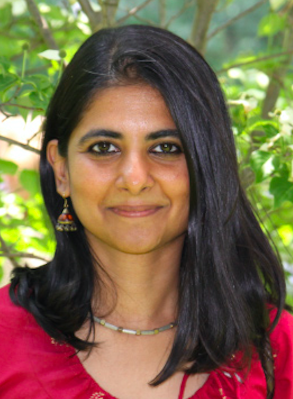PROVIDENCE, R.I. [Brown University] — Brown University professors Kavita Ramanan and Dr. Jack Wands have been elected by their peers as fellows of the American Association for the Advancement of Science (AAAS), the world’s largest general scientific society.
They will be honored formally at the AAAS annual meeting in Seattle in February 2020.

Ramanan, a professor of applied mathematics, was recognized “for her research in applied probability and efforts to increase the number of women in the science,” according to AAAS.
Ramanan’s research lies in the area of probability theory and stochastic processes. Her work investigates the study of uncertain outcomes and the effects of randomness, which pervades almost every aspect of life, science and engineering. Ramanan has pioneered the development of mathematical tools that can be used to analyze fundamental equations governing this behavior in disciplines as disparate as neuronal networks, queuing theory, statistical phenomena in physics and phase transitions. These studies help predict important outcomes such as how diseases may spread, performance of algorithms for cloud computing and synchronization of circadian rhythms.
An elected member of the Executive Council of the Association for Women in Mathematics (AWM), Ramanan has played a critical role in the dissemination of mathematical concepts within broader society, as well as in creating inclusive and rewarding environments for underrepresented groups, including women. She founded a math outreach group called the Math CoOp, helped to establish the AWM student chapter at Brown and organized the Women’s Networking Research Symposium conference at Brown.
Previous recognition of Ramanan’s work includes the Erlang Prize from the Applied Probability Society of INFORMS and fellowships of organizations such as the Institute of Mathematical Statistics, the American Mathematical Society, INFORMS and the Simons foundation.
“Given that the goals of the AAAS align closely with my own, I am deeply humbled and honored to have been chosen to join the distinguished list of fellows of the AAAS,” Ramanan said.
Wands, a professor of medical science, medicine and gastroenterology at the Warren Alpert Medical School, was recognized “for distinguished contributions to basic and translational research of liver diseases, particularly in understanding pathogenesis of hepatitis B infection and hepatocellular carcinoma,” according to AAAS.
Liver cancer is the most deadly cancer on the planet, and it’s increasing in prevalence in the United States. Hepatitis B and C greatly increase the risk of developing liver cancer, and Wands says the most dangerous part thing about the disease is that it’s often not discovered until it’s almost too late to do anything about it.
“I’ve spent most of my career studying how this disease develops and how we can establish new, early diagnostic techniques to detect it when it’s still small and then locate targets for therapy,” Wands said. “We want to detect it early and have powerful ways to treat it when it develops.”
Wands founded the Rhode Island Hospital/Brown University Liver Research Center and has received a number of awards, including two National Institutes of Health merit awards, a Max Planck Merit Award and a Bristol Myers Squibb unrestricted grant in infectious disease. He is the recipient of approximately 100 U.S. and international patents related to investigative work in hepatology, as well as several major NIH grants.
For Wands, being named fellow “is a great honor, and one that really clarifies your role and your contributions as a scientist,” he said. “I’m very proud to have been nominated and selected; it really means a great deal to me.”
Wands and Ramanan are part of a class of 443 distinguished researchers honored as fellows this year.
Founded in 1848, AAAS has been electing fellows since 1874.
Members can be considered for the rank of fellow if nominated by the steering groups of the association's 24 sections — which encompass a large swath of the science community, from agriculture to neuroscience — by any three fellows or by the association's chief executive officer.